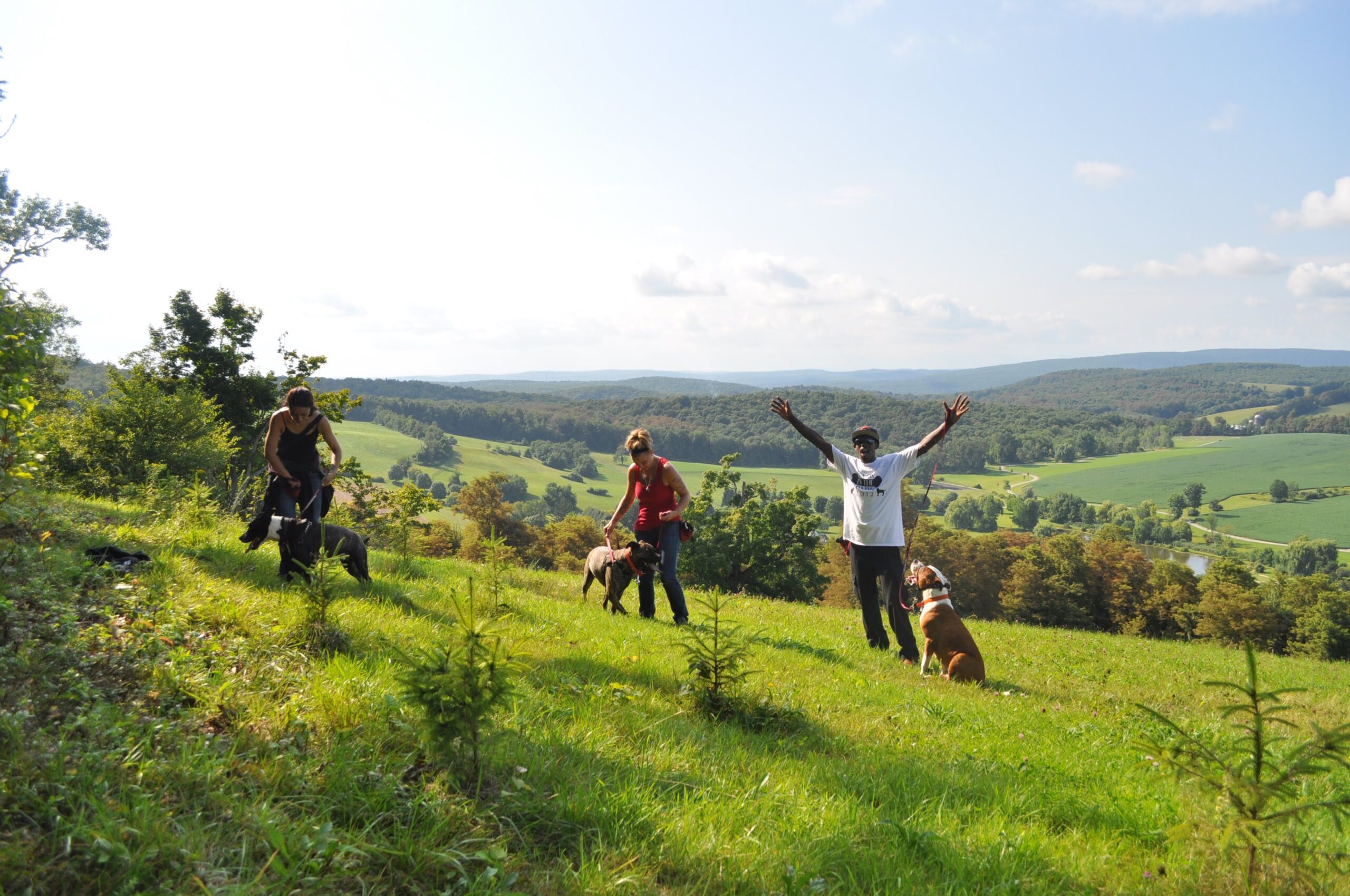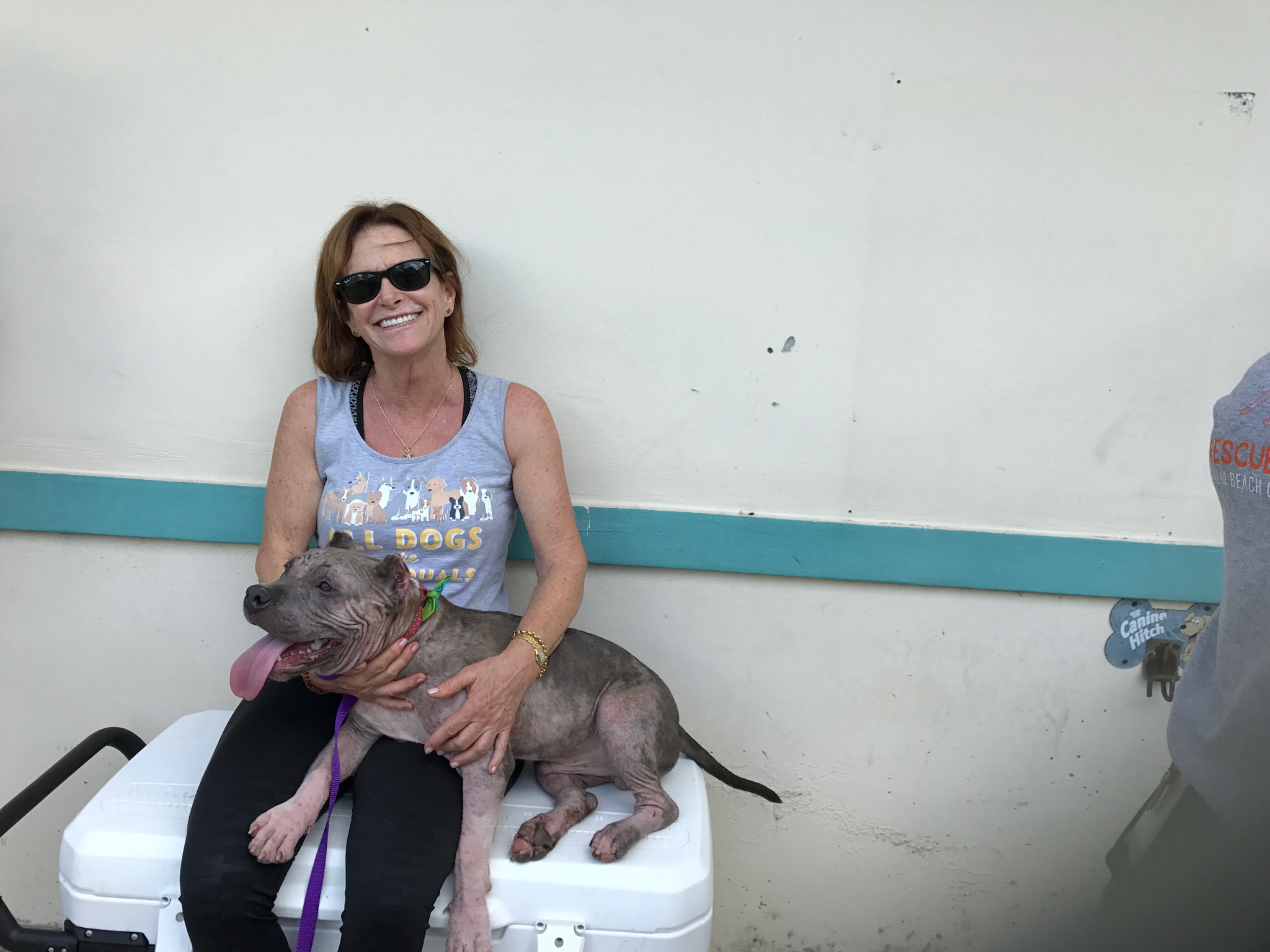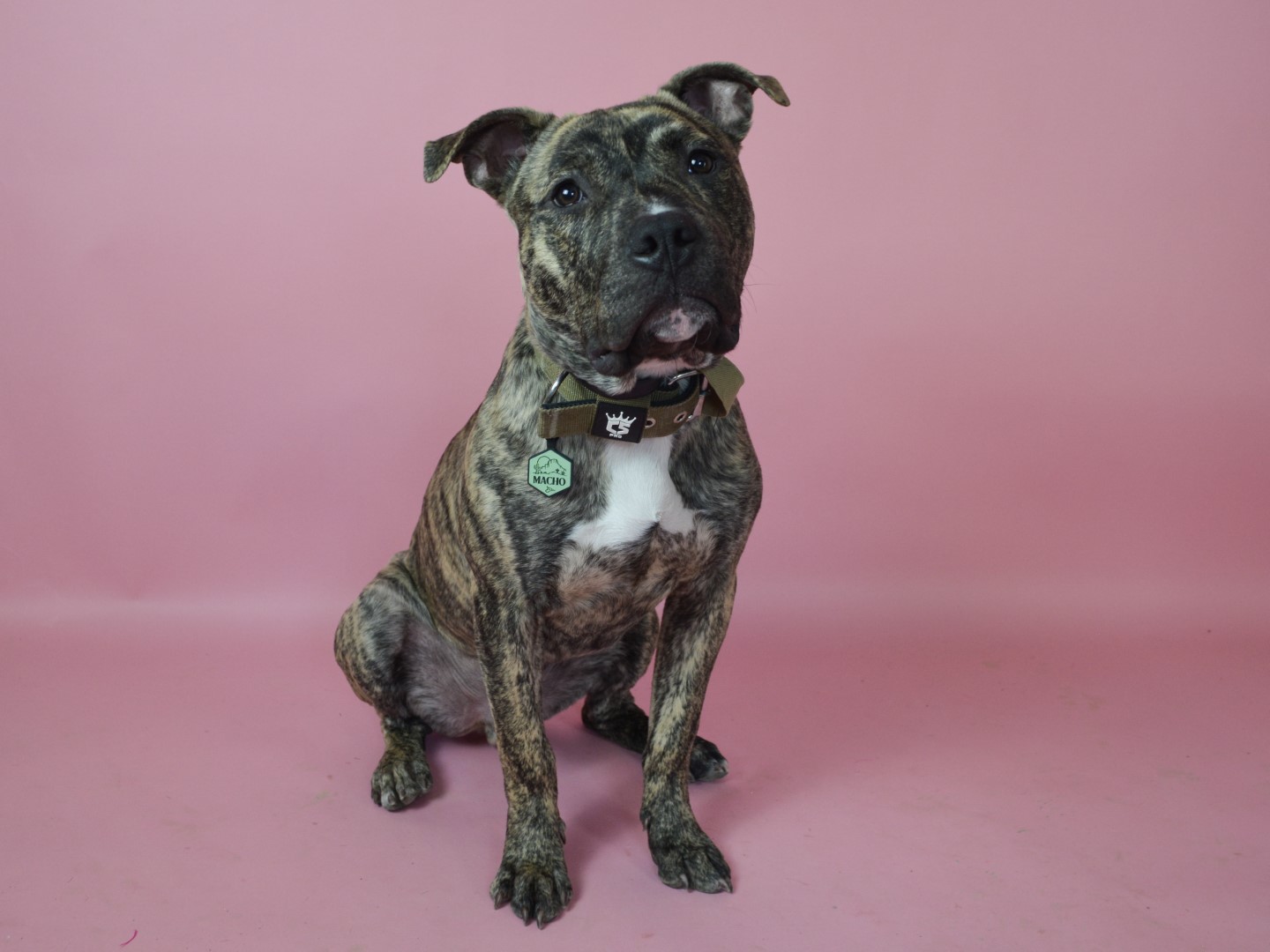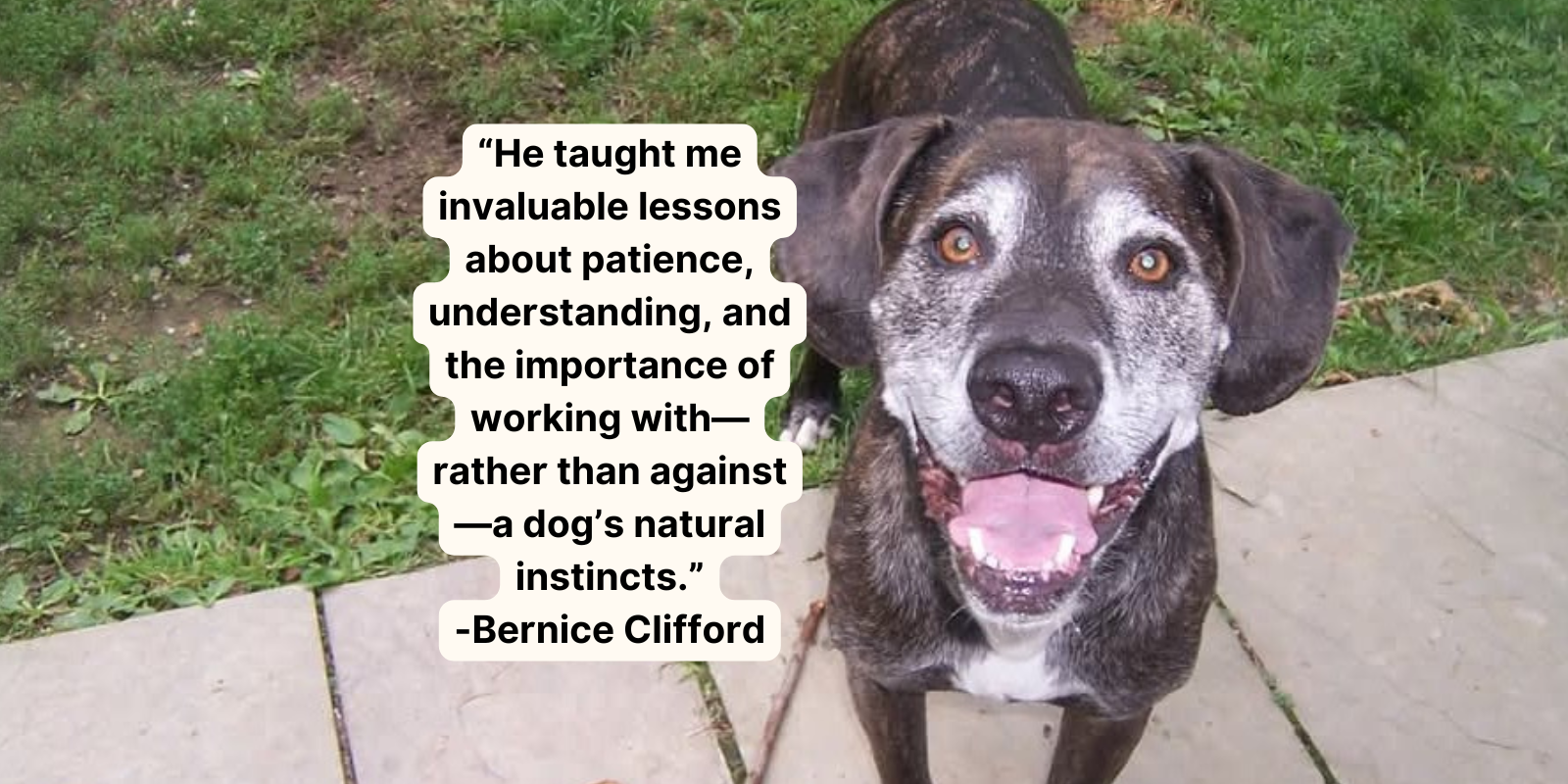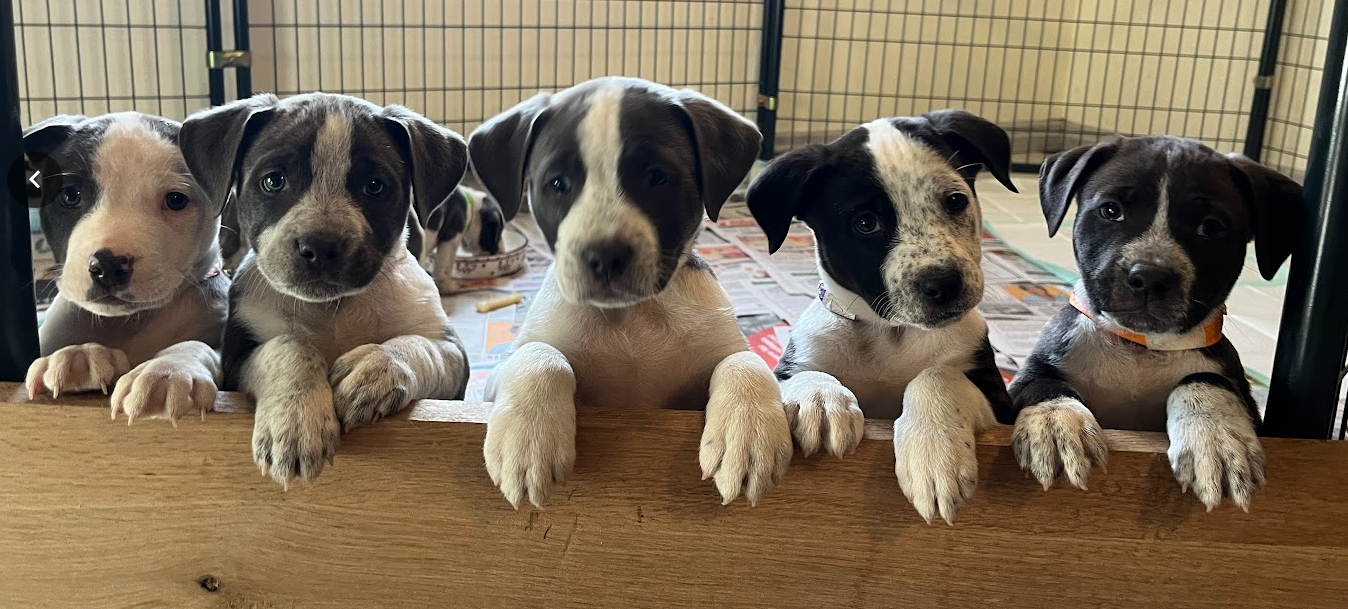We really love “pit bull” dogs here at AFF. To accomplish our mission, we work to remove discriminatory policies in shelters, in our law books, and much more. But here’s the secret to our work: it doesn’t just benefit “pit bull” dogs.
The overarching goal for us is not only to fulfill our mission to secure equal treatment and opportunity for any dog labeled “pit bull”, but to put an end to canine discrimination – for ALL dogs.
If we do our jobs right when it comes to “pit bull” dogs, then we effectively put an end to all the myths, misconceptions, and misinformation that form the basis for any discriminatory practice and policy against any dog.
In other words, done right, the discrimination buck stops here.
We’re thinking big picture!
We don’t just want to convince lawmakers that Breed Specific Legislation is bad for “pit bull” dogs and their families. We want lawmakers to understand that discriminating against any dog based on looks and breed is always ineffective and wrong.
That’s because what’s true for “pit bull” dogs is also true for ALL dogs (“pit bull” dogs are just dogs, after all!).
- No dog has a locking jaw.
- No group of dogs is inherently dangerous.
- No community is made safer when dogs are banned based on their physical appearance of breed label.
- No group of dogs needs blanket adoption restrictions placed on them, based only on their appearance or breed.
All dogs are individuals. When we say that, we really mean ALL dogs. Not just “pit bull” dogs.
This is important for all of us to think about because if we don’t do our jobs well now, then there will be a different group of dogs that gets singled out for discrimination, just as Rottweilers, Dobermans, German Shepherds, and “pit bull” dogs have already been.
Eventually, there will be a different group of dogs that are unfairly saddled with restricted adoption policies or bans in our communities. That is the nature of stereotypes, scapegoating, and discrimination – they move from one target to the next.

So although our work starts with “pit bull” dogs – because they need us right now – it ends with raising the bar for the way we understand canines as a whole, so that no other group of dogs can ever be discriminated against in the future.
Ending the cycle of discrimination means we help communities, politicians, and shelters understand that every dog must be evaluated as an individual, that communities are safest when our laws put the responsibility on the owner, and that adoptions are successful when we stop making assumptions about a dog based on their looks or breed label.
If we do our jobs right for “pit bull” dogs, then every dog, family, and community will benefit because it will finally be understood – once and for all – that a dog can’t be judged by looks or breed alone and that policies based on that line of flawed thinking are always doomed to fail us.
We challenge those of you who love and advocate for “pit bull” dogs to join us in Big Picture Thinking.
That means: Be mindful about how you talk about other dogs. If we are asking the public and policy makers not to rely on stereotypes about “pit bull” dogs or to judge them by their looks or breed label, then we must refrain from doing the exact same thing about other dogs.
If we do not treat ALL dogs as individuals, then we are perpetuating the thinking that will one day lead to serious consequences for other dogs. Another group of dogs and their families will suffer because we failed to advance our collective understanding about dogs.
So the next time you catch yourself making a joke about how Chihuahuas “are more likely to bite than a pit bull” or make a generalization that ALL Malinois need “owners with breed experience” (sound familiar?), we ask that you take a step back to reflect on this cycle of discrimination.

It does not help “pit bull” dogs when we speak negatively of other dogs.
It does not lift “pit bull” dogs up when we put another group of dogs down.
It’s a mistake to think that pointing fingers or generalizing about other dogs isn’t harmful. It may not be immediately obvious, but there are consequences. It undermines ALL dogs when we allow prejudicial thoughts, stereotyping, and finger-pointing to be perpetuated.
It allows the false belief that we can generalize about any dog – based only on their breed or physical appearance – to continue to exist. And that is the fuel that feeds the fires of discrimination.
Nineteen states already understand that treating all dogs as individuals applies to all dogs. Statewide BSL preemptions are being passed more and more frequently. While this seems like a victory for “pit bull” dogs, we urge you to see this as a victory for all dogs.
It means that in those states, there will be no other group of dogs that follows “pit bull” dogs in the long chain of canines that have been persecuted and banned over the past 100+ years.
We challenge all of you to examine your language not just when speaking about “pit bull “ dogs, but whenever you talk about dogs of any kind. Bring awareness to how you may be perpetuating the cycle of discriminatory thinking by making generalizations, pointing fingers, and perpetuating stereotypes.

If we do this right today, then no one will ever have to go before a town council to fight breed specific legislation again – not for “pit bull” dogs and not for any other dog.
If we do this right, then one will ever have to fight to get another group of dogs onto the adoption floor.
We’ll have shown the world that fair, equal treatment of all dogs is the ONLY way. The right way.
We can secure this only when we promote this basic truth: All dogs are individuals first and foremost.
The cycle of discrimination ends with your help. The discrimination buck stops here.

